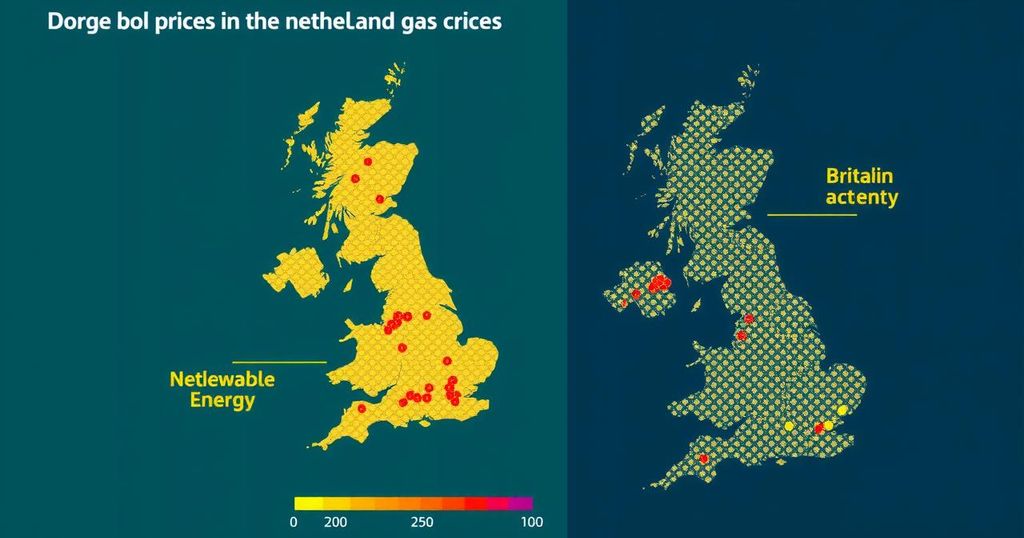Impact of Weather and Wind Power on Dutch and British Gas Pricing
Mild weather and enhanced wind energy forecasts have resulted in decreased gas prices in Dutch and British markets, with the Dutch TTF benchmark contract falling to €39.40 and British weekend contracts to 94.90 pence. Increased demand is anticipated during the workweek despite slight declines in Norwegian gas exports. Geopolitical tensions, particularly in the Middle East, continue to introduce uncertainties in the energy sector.
Recent fluctuations in Dutch and British gas prices have been attributed to unexpectedly mild weather and an uptick in wind power generation, providing a degree of relief in an otherwise strained market. With temperatures surpassing seasonal averages across Europe, a resultant decrease in gas demand has contributed to a decline in prices at pivotal trading hubs. Specifically, the benchmark front-month contract at the Dutch Title Transfer Facility (TTF) dropped to €39.40 per megawatt-hour, and British weekend contracts fell to 94.90 pence per therm. Analysts predict a slight upsurge in gas demand, estimating an increase of 88 GWh/d during the upcoming workweek, in conjunction with stable consumption levels at gas-powered plants over the weekend. However, it is noteworthy that Norwegian gas exports have diminished slightly due to prolonged maintenance operations, and the consistent price differential between Asian and European markets hampers motivation for U.S. liquefied natural gas (LNG) exporters. Compounding these factors is the prevalent geopolitical tension in the Middle East, which introduces additional complexities to the energy market dynamics.
The current trends in gas pricing reflect a broader interplay between climate conditions and energy production capabilities, particularly in Europe. The mild weather observed in recent weeks indicates reduced energy demand, thus resulting in lower prices within major trading markets. Furthermore, the significance of renewable energy sources, like wind power, continues to grow as they increasingly impact energy supply landscapes. Simultaneously, geopolitical unrest, especially concerning tensions in the Middle East, remains a critical consideration as it can disrupt gas supplies and create fluctuations in pricing, signaling the interconnected nature of global energy markets.
In summary, the interplay of mild weather and increased wind energy production has led to a decrease in gas prices in both Dutch and British markets, despite ongoing geopolitical tensions that pose risks to energy stability. Investors are encouraged to monitor these developments closely, as they reveal potential shifts in the energy market, influenced significantly by weather and political dynamics. Such vigilance may uncover both opportunities and challenges for market participants as they navigate through these changing landscapes.
Original Source: finimize.com




Post Comment